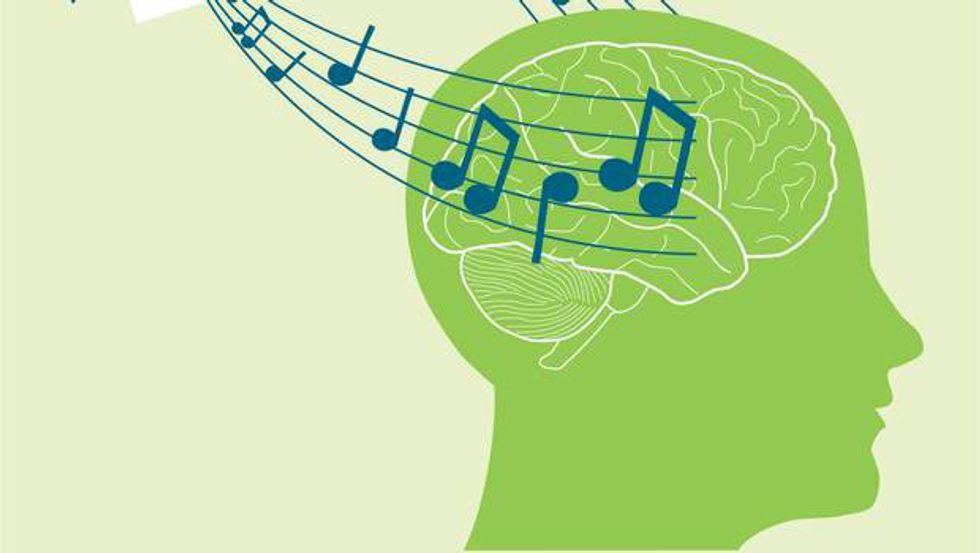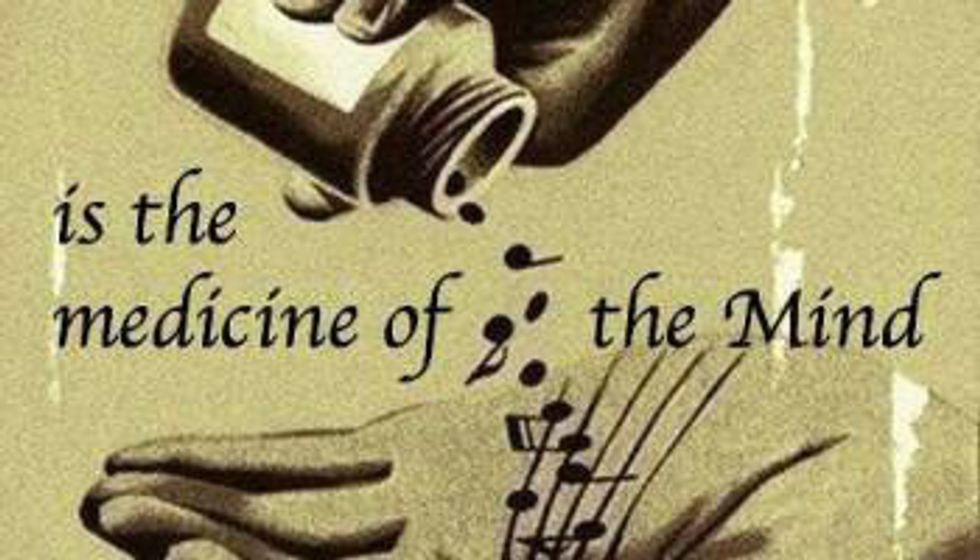At a recent Supernatural convention in Nashville, Tennessee, star Jared Padalecki (Sam Winchester), a known mental health advocate who has been open about his own anxiety and depression, was asked how he makes himself happy when he’s feeling sad. As he gave some heartfelt advice, a moment really stood out when he mentioned that the night before the panels he formed a solo dance party in his hotel room, grooving to the tune of Jimi Hendrix. Jared revealed that his psychiatrist encourages his patients to sing or do a dance or drum party every week. His doctor touched on how, for example, just drumming on something while listening to music positively affects the beat or rhythm of the brain.

Jared’s words were intriguing and enlightening; on some level I knew that music was special, especially with its ability to connect and create emotion. Music is universal and its effect on the soul is, simply, magical. What do studies about mental health and music have to say, though? After doing some research, I was fascinated to learn that even back in the 1950’s, when there was still plenty of room for improvement on how mentally ill patients were treated, some physicians were discovering the positive ramifications of music therapy. In an article published in 1953, music was considered even then to be “one of the best medicines for the mind.” In the piece, Dr. Egbert Gurnsey states that “there is no telling the good that might be accomplished, the lives brightened and the tangled brains restored to harmony” if all hospitals and every doctor were willing to induct a musical director in their staff and embrace the “nature and action of music.”
It is amazing the amount of supportive research that reveals why music is essential to us (and not only mentally, but physically as well). Psychology Today discusses the effects of music on a number of specific disorders, one of them being depression. Depression, which is a persistent and profound mood disorder that interferes with our thoughts, mood and behavior as well as physical health, reacts positively to music in that music therapy “may increase responsiveness to antidepressant medications” as well as alleviating heart rate, blood pressure, or the depression symptoms (as evidenced especially in adult women). Obviously, music’s impact on mood, its ability to make us feel joy or sadness, agitated or relaxed, shows an obvious link between it and how it affects the human mind.
The National Association of Music Merchants (NAMM) Foundation supplied a list of facts regarding the effect of music on people, such as a study showing how music reduces stress and anxiety. Interestingly, music can also “trigger the brain” so that it releases chemicals to alleviate pain by distracting the body from it. The study reveals that when music reaches the brain’s auditory cortex, the cortex and the area of the brain that controls emotion, memory and motor control communicates with one another.
The American Psychological Association goes on to describe the effect of sound frequencies and rhythm to treat patients and how music is not only just an “outlet for emotions.” Music can reduce stress while also improving the body’s immune system; a study even found that listening to music before surgery reduces more anxiety than prescription drugs do. Essentially, “music is sound, and sound is rooted in vibration,” so researchers are wondering if the sound vibrations being absorbed by people is what is helping to improve the individual’s pain, anxiety, depression and immune systems.
USA Today also released an article discussing a handful of surprising science-based facts regarding health and music. They report that music can improve the quality of sleep while also inducing people into a meditative state. The beats of the music can “alter brainwave speed”; steady beats specifically slow down that speed similar to when someone is meditating or hypnotized. Music, on top of relieving depression and anxiety, can also elevate mood and self-awareness as well as improve cognitive performance. Music can even help cancer patients manage stress and anxiety, as well as ease recovery in stroke patients.
The truth is, I have had solo dance parties, featuring my less than impressive singing voice. However, I have never bothered to question why I felt better afterwards. Maybe I get caught up in the beat while in my car or in the bathroom when I’m getting ready for work and I simply accept the change in my mood without further introspection. Looking back, though, I recognize the effect music has, and has always had, on my emotions and mental well-being. My thoughts run rampant daily, my brain (and anxiety) is all over the place. I am, almost always, painfully self-aware and observant. Music is the only thing that can slow it all down and help me focus me on a singular source when I allow myself to get wrapped up in it. I’m not referring to simple background music; it’s the times where I’m pumping my fist, dancing where nobody can see, thinking of nothing but the lyrics passing through my lips and the beat of the music flowing through me. In those moments I have never felt freer, especially since my brain finally has the opportunity to slow down.
Stanford even did a study showing that music engages parts of the brain that are involved with how we pay attention by “updating events in our memory." I am grateful for music’s ability to center my focus and bring me a brief sense of calm and comfort.
In the words of Jared Padalecki: “If you’re feeling sad, find something you love, go to a quiet room, and drum and dance and nobody’s watching and be yourself…’cause yourself is awesome.”
My playlist is a mix of new and old, popular and unknown, the various genres unimportant because if I like a song, I like it no matter what style it has been grouped with. Certain songs always get me moving and singing; recently, nothing makes me want to sing, dance, or drum more than Imagine Dragon’s incredible new single, “Believer”.
Rapper Prozak released a song entitled "Audio Barricade" in 2013, and I have always loved its message; it now carries even more weight after learning how therapeutic music actually is. Music has always been an escape and barrier for my pain; now I understand why. Prozak's song is all about the positive impact music has even during the most difficult times. This particular verse speaks volumes:
"Sometimes I really think I'm losing it
I don't really know what I would do without the therapy of music
Therapeutic no substituting
Can't erase the pain but sure help subdue it
Helps me to get through
Dismiss my issues
Gives me a lift to a place that's less blue
Sorta like a force field that protects you
Audio barricade I suggest you
Turn it up a little louder
When you feeling lonesome
When you feeling down some
When you really feeling like you hit rock bottom
And nothing to break your fall but more problems
And all the walls seem to close in on you
Nothing but darkness to fall upon you
Feels like all is lost everything around you
The sun will rise again you gotta push onward..."
What songs or genres of music always get you in the mood for dancing, singing or drumming? What song will your first solo dance party be to?
























